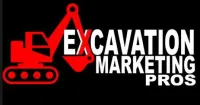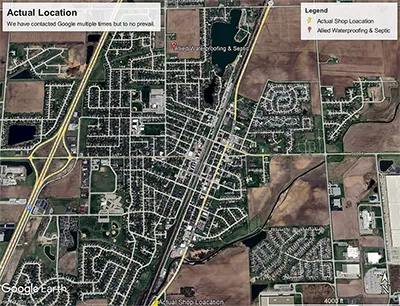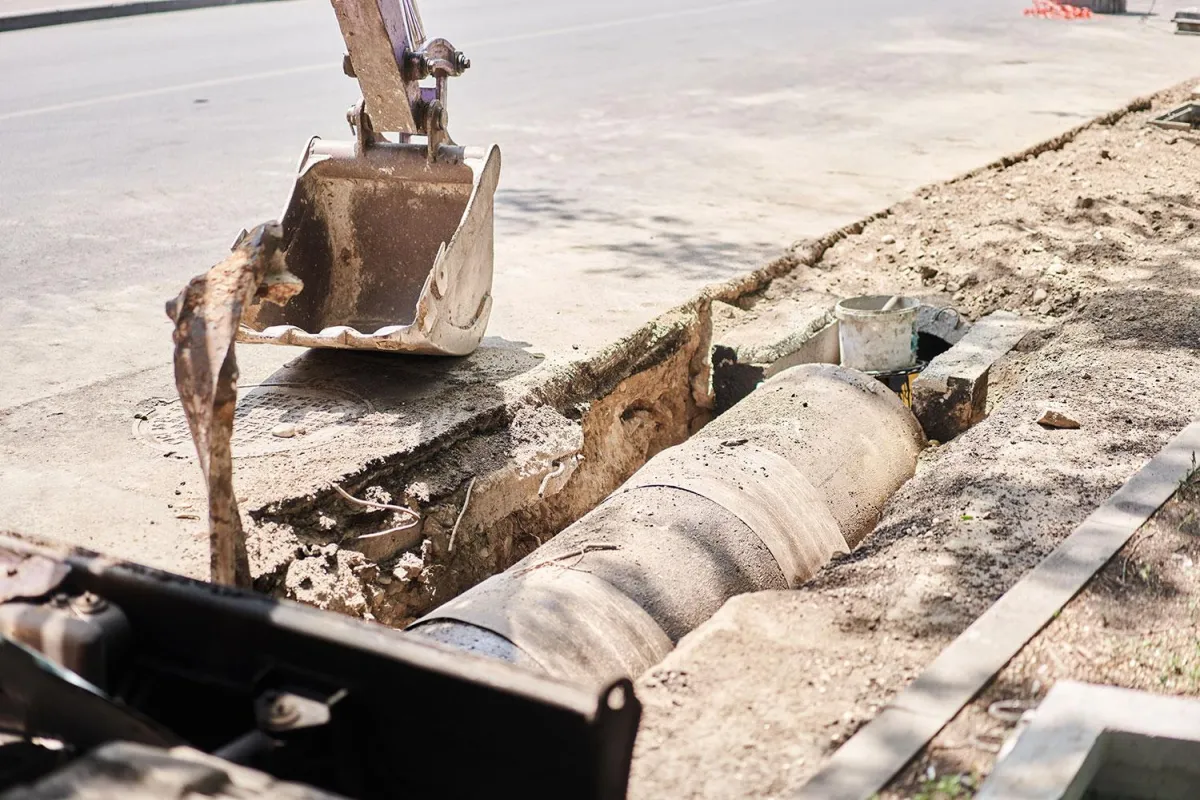
Pay Now or Pay Later: The Real Cost of Ignoring Stormwater Management Near Naperville
1. Why You’re Probably Reading This (And Why It Matters)
You’ve probably noticed something off around your property. Maybe it’s the standing water in your yard after a heavy rain. Maybe your basement smells a little musty—more often than it used to. Or maybe you’re just tired of playing hopscotch with the puddles in your driveway.
Whatever brought you here, we get it. You’re not just looking for another bill. You’re looking for a real solution that actually works, something that protects your home without blowing a hole in your wallet. You might even be thinking, “Is this really that big of a deal? Can I just wait until spring… or next year?”
We’re Allied Waterproofing & Septic, based in Manteno. We serve folks all over DuPage County, from Naperville to the edges of Cook and Will, and we’ve seen what happens when people wait too long. This article isn’t about scare tactics. It’s about honesty. Because when it comes to stormwater problems, waiting usually means paying more, sometimes a lot more, later.
2. What Is Stormwater Management, and Why Should You Care?
Let’s break it down.
Stormwater is the rain and snowmelt that doesn’t soak into the ground. In cities and suburbs like Naperville, all that water has to go somewhere. If your property doesn’t have the right setup to guide it away like proper grading, drains, or a sump pump it’ll find its own way.
And that “way” often leads straight into your basement, crawl space, or foundation. That’s where stormwater management comes in. It’s not just about pipes and pumps. It’s about designing a system that handles water safely—so it doesn’t damage the most important investment you’ve got: your home.
3. The Silent Damage: What Happens When You Ignore the Water
Here’s what makes stormwater problems tricky: a lot of the damage they cause is slow, quiet, and sneaky.
Basement leaks don’t always gush—they start as little drips behind drywall.
Foundation cracks might just look like hairlines at first.
Mold doesn’t show up until the air starts to smell like an old sponge.
By the time most homeowners notice something’s wrong, they’re already dealing with real damage. And the costs? They’ve gone from hundreds to thousands.
It’s kind of like ignoring a leaky roof. Sure, it might not seem urgent today… but after one rough storm, you’re dealing with waterlogged insulation and ruined drywall. Stormwater works the same way.
4. Real Costs Homeowners Don’t See (Until It’s Too Late)
Let’s talk numbers. These aren’t scare tactics; they’re based on real jobs we’ve been called to after the fact:
Foundation repair from water damage: $4,000–$15,000
Mold remediation after basement flooding: $2,500–$10,000
Basement refinishing (after water damage): $5,000–$20,000+
Property value loss due to recurring water issues: varies but it’s real
Compare that to the cost of a custom stormwater drainage system, which often ranges from $1,500 to $7,000 depending on your property’s needs.
We’re not saying stormwater management is cheap. But we are saying it's usually way cheaper than dealing with the damage after the fact.
5. Naperville Isn’t Flat: Local Soil and Water Challenges You Need to Know
If you live near Naperville or anywhere in DuPage County, your stormwater issues aren’t just “bad luck.” They’re often tied to geography.
This region has dense clay soil that doesn’t drain well. Water tends to sit on top of it especially after heavy spring or summer rains. And because the area isn’t perfectly flat, all that water moves often straight toward homes built in natural low spots.
Add in snowmelt, downspouts pointed the wrong way, or yards that slope toward the foundation… and you’ve got a recipe for soggy basements and slow erosion.
It’s not just about “fixing a leak.” It’s about understanding your land, your home, and how water interacts with both.
6. Quick Fixes vs. Smart Fixes: Why Some DIY Drainage Solutions Fail
We’ve seen them all:
The plastic splash block under the downspout
The gravel-filled trench someone read about on a DIY blog
The random bags of topsoil stacked against the foundation like sandbags
Some of these might work for a minute. But they don’t fix the actual problem especially not in Naperville’s weather and soil conditions.
The truth is: stormwater issues need tailored solutions. What works in one backyard won’t work in the next. That’s why we always start with a walkthrough and drainage assessment. You need to know what the land is doing before you try to fix how the water moves through it.
7. What Smart Stormwater Management Actually Looks Like
Here’s what real solutions might look like not one-size-fits-all, but effective:
French drains to carry water underground and away from your home
Downspout extensions that move water at least 10 feet from your foundation
Proper grading to make sure your yard slopes away from your house
Sump pumps with battery backups, especially for homes with basements
Dry wells or catch basins to collect and slowly release water
Permeable pavers that let water drain instead of puddle
We know that list might sound like a lot. But the goal isn’t to sell you all of it—it’s to find the few things your specific property actually needs to stay dry and damage-free.
8. How to Know When It’s Time to Act
Wondering if it’s “bad enough” to call someone? Here are some warning signs that say yes:
Puddles that hang around for more than 24 hours
Water marks or stains on your basement walls or floors
Musty smells, even if you don’t see mold
Cracks in your foundation
Lawn erosion or mulch constantly washing away
Water coming in around basement windows or doors
The earlier you catch it, the cheaper the fix.
9. The “Customized” Part—Why Cookie-Cutter Doesn’t Work Here
Here’s where we might be a little different from bigger firms.
At Allied Waterproofing & Septic, we’re not rolling up to your house with a one-size-fits-all drainage “package.” We treat every property like its own little puzzle. Because frankly, it is.
Some homes need just a downspout rerouted. Others need trenching or a full basement sump system. We’ve worked on sloped city yards and big rural lots, and no two of them have ever been exactly the same.
That’s why we take the time to understand your property, your budget, and your long-term goals—so you’re not paying for stuff you don’t need, or skipping what’s really important.
10. Final Thought: The Cost of Doing Nothing Is Always Higher
Stormwater management isn’t glamorous. No one’s excited to spend money on buried pipes or trenching behind the bushes.
But when you compare the price of a planned fix to the cost of emergency cleanup, it becomes clear: doing nothing is the most expensive choice.
You don’t need to solve everything today. But if your property is giving you signs that water’s winning, let’s at least talk. Even if you’re not ready to fix it right now, we’ll help you understand your options—so you can plan instead of panic.
Because in our experience?
It’s always cheaper to pay now than to pay later.
Press Releases
Allied Water Services Announces Strategic Partnership with Norweco to Supply High-Quality Septic Tanks to Industry Professionals
- Business Wire
February 04, 2025
MANTENO, Ill.--(BUSINESS WIRE)--Allied Water Service, a leader in septic, sewer & waterproofing solutions, is proud to announce an exclusive partnership with Norweco, a globally recognized manufacturer of advanced wastewater treatment systems.
Read More
Allied Water Services Announces Strategic Partnership with Norweco to Supply High-Quality Septic Tanks to Industry Professionals
- Yahoo Finance
February 05, 2025
MANTENO, Ill. Allied Water Service, a leader in septic, sewer & waterproofing solutions, is proud to announce an exclusive partnership with Norweco, a globally recognized manufacturer of advanced wastewater treatment systems.
Read More
Allied Water Services Announces Strategic Partnership with Norweco to Supply High-Quality Septic Tanks to Industry Professionals
- Yahoo Finance
February 04, 2025
MANTENO, Ill.--(BUSINESS WIRE)--Allied Water Service, a leader in septic, sewer & waterproofing solutions, is proud to announce an exclusive partnership with Norweco, a globally recognized manufacturer of advanced wastewater treatment systems.
Read More
Allied Water Services Announces Strategic Partnership with Norweco to Supply High-Quality Septic Tanks to Industry Professionals
February 04, 2025
MANTENO, Ill.--(BUSINESS WIRE)--Allied Water Service, a leader in septic, sewer & waterproofing solutions, is proud to announce an exclusive partnership with Norweco, a globally recognized manufacturer of advanced wastewater treatment systems.
Read More
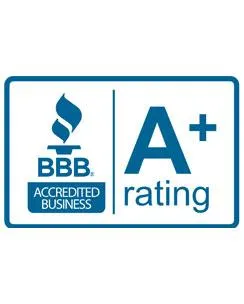


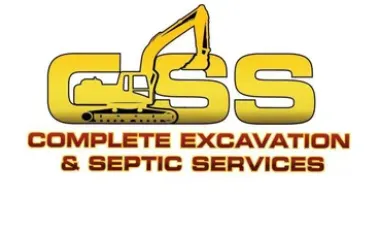
Hours:
Mon - Fri 9:00 am - 5:00 pm
Extended hours by appointment only.





